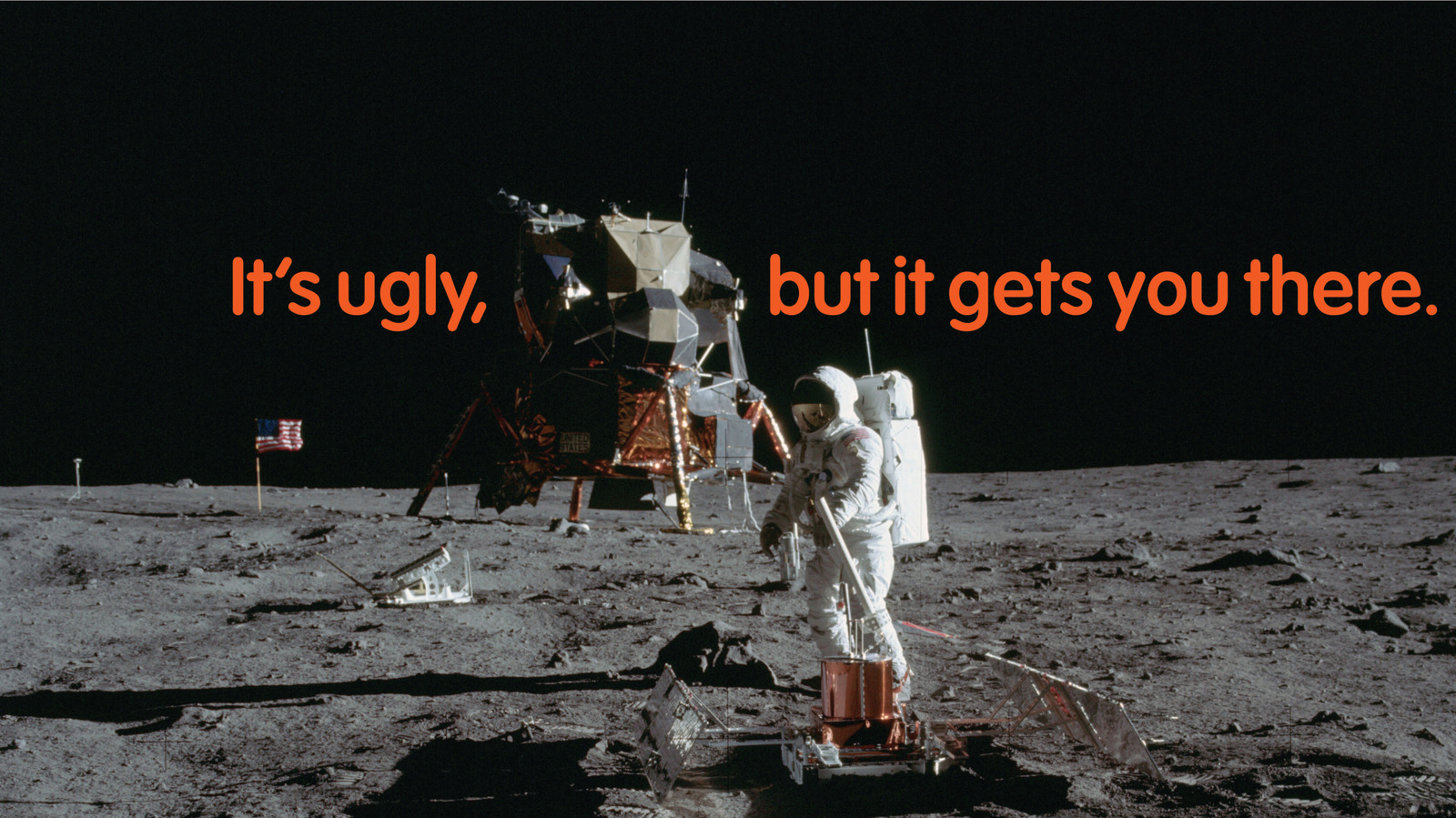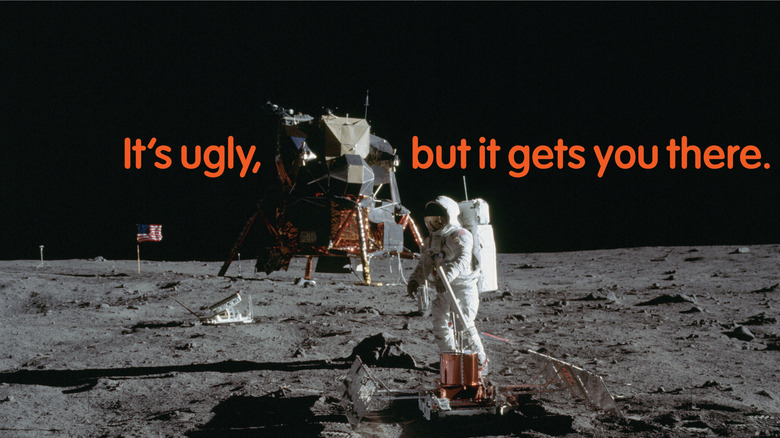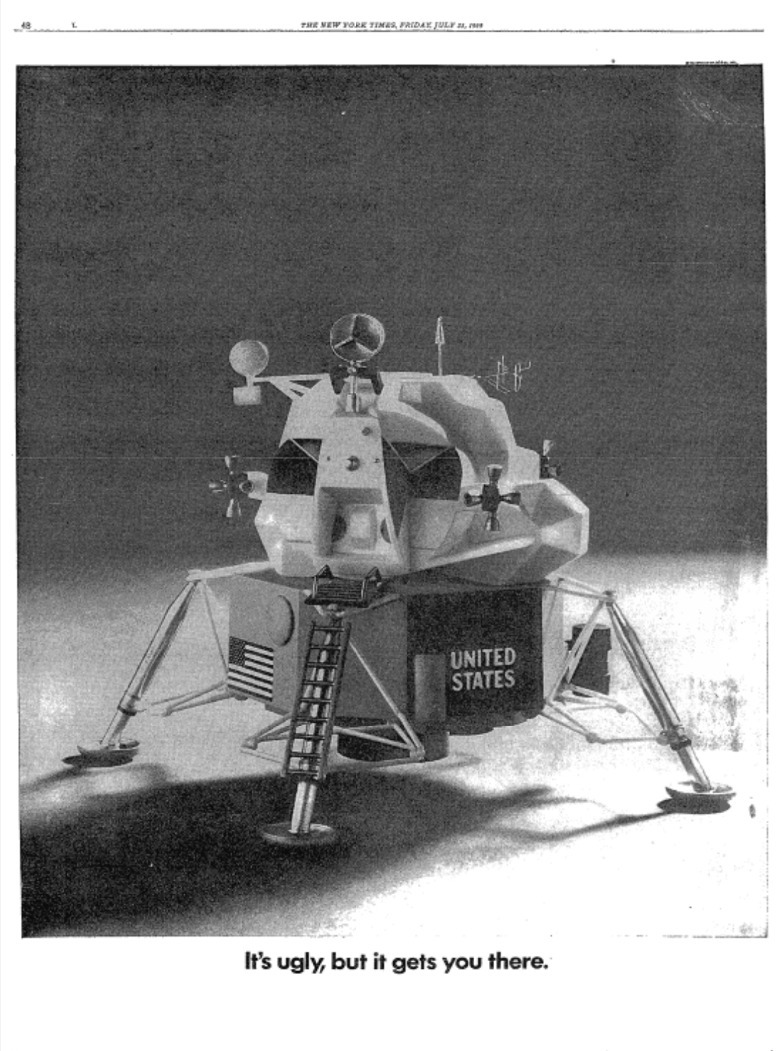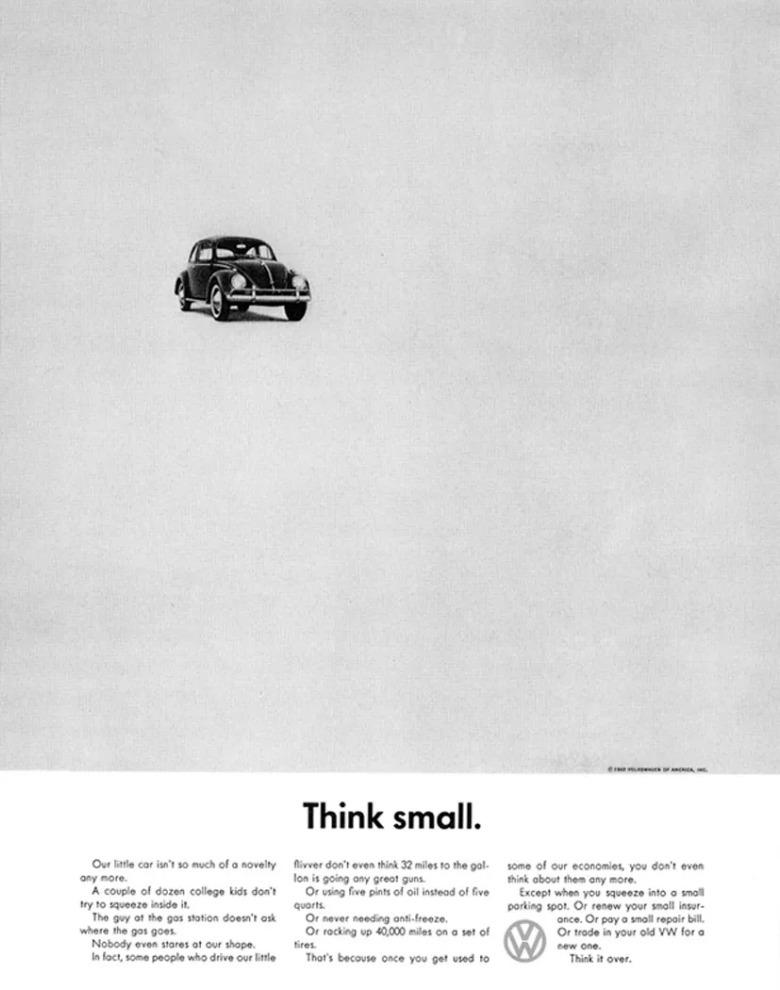With the concept of a monoculture truly buried by social media, it’s difficult to imagine a singular live event captivating the entire country and most of the planet. No event better exemplified this bygone phenomenon than Apollo 11. It’s estimated that 94% of American TV households tuned in to watch Neil Armstrong and Buzz Aldrin touch down on the lunar surface. While Volkswagen didn’t play a role in delivering Eagle to the Moon, the German automaker couldn’t resist marking the occasion with a brash print ad poking fun at the public’s perception of the brand.
If you bought the July 25, 1969 issue of the New York Times, the front page story covered the Apollo 11 astronauts returning to Earth and entering quarantine. NASA wanted to be sure they weren’t tracking back a contagion that would put the planet at risk. Flipping all the way to the back page, you would have seen a photo of an Apollo Lunar Module model with the caption, “It’s ugly, but it gets you there.” While there was no VW logo, the rounded geometric typeface used in previous iconic ads made it clear the message was from Volkswagen.
Volkswagen wasn’t the only business that took advantage of fervor. Other companies either capitalized on their ties to Apollo or congratulated NASA for the historic accomplishment. Omega proudly boasted about being the first watch worn on the Moon. Grumman professionally noted its role as the Lunar Module manufacturer. Trans World Airlines saluted thousands of NASA employees who contributed to the effort with a hard hat toss.
If it ain’t broke, don’t fix it
Volkswagen’s ad was the work of Doyle Dane Bernbach. The Madison Avenue marketing agency first struck gold for the German automaker with the “Think Small” campaign in 1959. The ads published feature a black Volkswagen Beetle in a massive bare studio with a snarky, self-deprecating caption. It’s a format that DDB would iterate on and continue to use for Volkswagen ads for decades. The Apollo 11 ad was one of those iterations. The firm continues to produce advertisements for the automaker to this day.
The Super Bowl is the last cultural event with a wide enough appeal for companies to produce advertising specifically for it. However, the spots are rarely ever about the accomplishments of any team or player in the National Football League’s championship game. The closest is the traditional Disney ad where the game’s MVP shouts, “I’m going to Disney World!” Apollo was different. It was an accomplishment that would have been deemed only possible in science fiction just a few decades earlier. That level of mass excitement and ecstasy is impossible to replicate.





